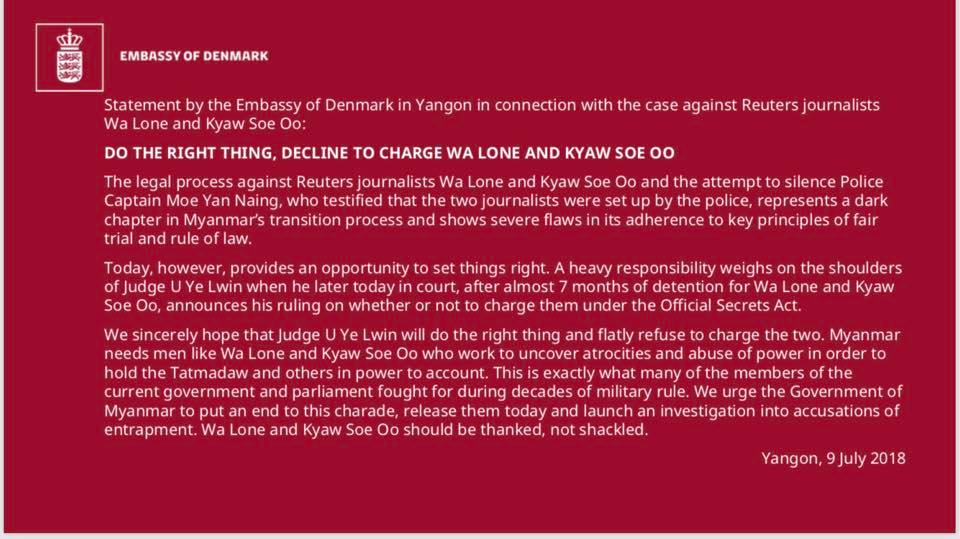The Scandinavian embassies in Myanmar are still pleading for the release of two jailed Reuters journalists. Today the court has decided to charge them under the criticized Official Secrets act.

The two Reuters journalists, Wa Lone and Kyaw Soe Oo, has been charged with violating the Official Secrets Act, according to Reuters.
The Official Secrets Act is a colonial era law that prohibits obtaining secret state documents. This moves the press freedom case into its trial stage after the journalists have been detained for more than six months.
The Scandinavian embassies have been following the trial since its very beginning and especially the Danish embassy has been very outspoken about what they deem as a “test of the commitment of the Government of Myanmar to press freedom.”
The two journalists were arrested for obtaining secret documents with the intention to harm national security. But the circumstances surrounding the arrest has been questioned:
In April, Police Captain Moe Yan Naing testified that a senior officer had ordered his subordinates to plant secret documents on Wa Lone to “trap” the reporter, according to Reuters.
In an earlier article, Peter Lysholt Hansen, Danish Ambassador to Myanmar, spoke about the embassy’s strong position on the innocence of Wa Lone and Kyaw Soe Oo:
“This is not meant as a confrontation but as a token of help. We believe that the freedom of press is extremely important for a country like Myanmar, and this particular situation is just a case and point,” he said.
And the embassy has also made a statement following the judge’s decision to charge Wa Lone and Kyaw Soe Oo:
“It is a tragic irony that the unjust and unfair criminal “justice” system in Myanmar continues to be misused to silence the media and journalists like Wa Lone and Kyaw Soe Oo. They have done the country a great service in revealing atrocities carried out by security forces and Rakhine locals in Inn Din in Rakhine State,” the embassy writes in a public statement.
“It is also extremely dissappointing that this is taking place under an NLD lead government on the basis of ancient legislation, created by the British colonial government in 1923 to criminalise the sharing of almost any kind of information held by the government. This legislation clearly violates the right to freedom of expression, a right which many NLD members fought and went to prison for under the military regime.”
1:09 pm: Updated with a new statement from the Danish Embassy in the final part of the article.
